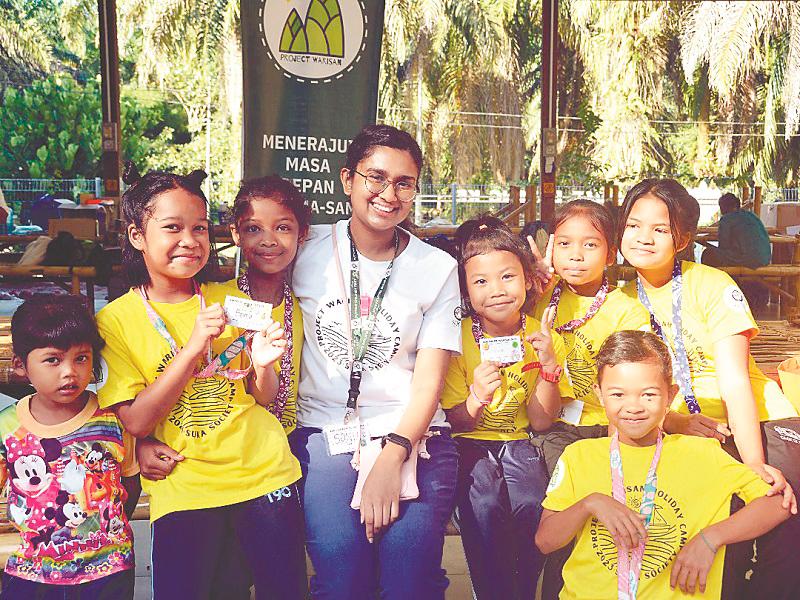Education remains out of reach for many, especially those living in the remote areas of peninsular Malaysia, Sabah and Sarawak. The most vulnerable community remains the Orang Asli, whose children need to attend pre-school, before enrolment in primary school.
Without pre-school exposure, many Orang Asli children are unable to cope with primary school, which begins at age six, due to the need to master the basics of reading, writing, speaking and counting in mathematics, in Bahasa Malaysia and English. Most young Orang Asli children only speak their own dialect, depending on which tribe or village they belong to.
Since 2014, Suka Society or Persatuan Kebajikan Suara Kanak-kanak Malaysia, founded by Anderson Selvasegaram, under its Empowered2Teach (E2T) initiative has brought education to 13 Orang Asli pre-schools located in remote areas.
Anderson said: “The purpose then and now is to empower the indigenous community by giving them greater access to education. This is done by giving the Orang Asli the opportunity to be their own teachers by providing training, support and resources.”
He added that as of 2024, there were 219 students, aged three to six years old, in pre-school Orang Asli centres, located in remote villages across Slim River, Gopeng, Tapah, Kuala Rompin, and Gua Musang in Peninsular Malaysia. In Sabah, there are centres in Penampang, Keningau, Telupid, Tongod, and Kota Marudu.
“Mostly from the Semai and Temiar communities, the children are also supported in their physical, emotional, social and intellectual development,” added Anderson, who said that Suka Society was also running a follow-up programme, called ‘Project Warisan’ for current and former students.
“It was initiated in 2022 with the goal of encouraging the children to continue in their schooling, we support their parents, where possible, gathering data on their progress, as well as having success stories to share and motivate those following in their footsteps,” shared Anderson, who admits the E2T initiative had faced many hurdles.
“The Orang Asli community is aware of the importance of early childhood education but they face challenges. One being the long distance to reach the pre-school centres, crossing rivers and remote jungle trails on a daily basis,” he said.
“Some of the other challenges faced by E2T schools are stable access to electricity and internet. Most of the schools are in remote areas, so when electricity is disrupted for several days, students have a less conducive environment, especially during the hot season.”
According to Anderson, teachers’ training is conducted twice annually, during the school holidays.
“It is mandatory for the main and co-teachers to attend training so they can continue to improve and develop as teachers. All our E2T teachers receive a salary. There are currently 35 pre-school teachers trained under the programme.
“New teachers undergo two rounds of on-the-job training in our pre-school in Gopeng, Perak.
“They observe Dinah, the teacher-in-charge of the school, as she runs her own classes and the potential teachers will receive guidance and training over five days,” he said.
“The potential pre-school teachers are chosen by the Orang Asli community as candidates, based on experience.
“They will then attend teacher training at Suka society,” said Anderson, who depends on sponsors to fund the programme.









